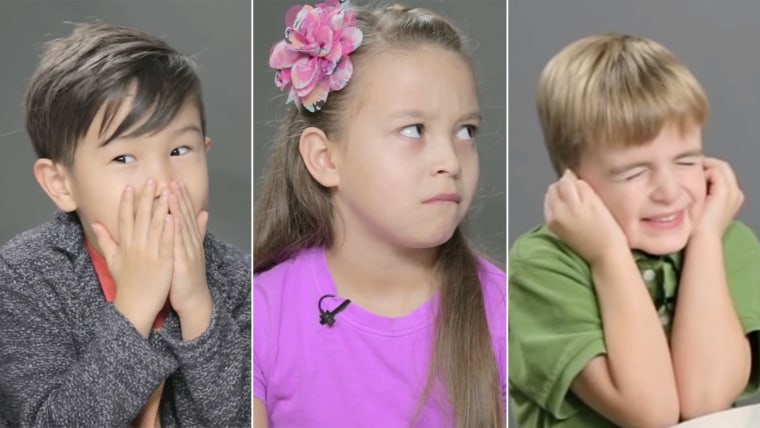Let’s talk about sex. That’s what a group of parents agreed to do on camera in a viral new video that shows just how cringeworthy it can be for adults to explain to kids where babies come from.
The results are cute and hilarious, with the children demonstrating some rudimentary knowledge about the process.
“There’s some kind of a hole here, like an igloo,” one boy said pointing to his mom’s stomach. Another referred to a certain body part as a “van-gina.”
One child knew that parents have to “work together” to have a baby, but some kids covered up their ears or their faces when they heard more details. Their parents, meanwhile, struggled for words to describe how everything works.
“We took off all our clothes… and then mommy and daddy did a special dance,” one dad explained.
The clip—created by Cut.com, a Seattle-based video production company—features real families having unscripted conversations, said spokesman Mike Gaston. The children were found through a talent agency in Seattle.
Amnah King, who is featured in the video with her 9-year-old son Anijae, said she agreed to take part because she thought it would be fun.
“It was an opportunity to give a more detailed ‘talk’ in a more interesting setting,” King told TODAY Parents. “I'm a nurse, so talking about bodily functions doesn't make me too squeamish, but it still was a bit embarrassing talking about the topic with my child.”
Krista Linden, seen in the video with her 6-year-old daughter Sofia, said knowledge is power, especially for young girls, so she was glad if she could help open up the dialogue.
“My husband and I are not ones to talk about ‘the stork’ or Santa or the Easter Bunny or make up names for different parts of our anatomy. We pretty much say it like it is, because we never want there to be a time when our children feel deceived or misled,” Linden said.
Many families say explaining sex is the talk they’re most stressed about having with their kids, said parenting expert Michele Borba. After viewing the video, here are her 4 sex-talk tips:
1. Start bringing up the subject earlier.
That doesn’t mean talking about the mechanics of intercourse with toddlers, but using the correct anatomical terms from the start.
“The biggest thing that I saw discomfort with a number of the parents was using terminology, like vagina or penis. You saw most of the kids covering up their ears, but you could also see the awkwardness of the parents. The research says if you start at the age of 2 and 3 … you’re giving your kid a bath, that’s the perfect time to say, that’s your penis,” Borba said.
2. Avoid a formal sit-down talk.
It’s much easier if you use simple little teachable moments, rather than a long biology lesson, Borba said. Sitting around a table may be too formal. Instead, go for a walk or shoot basketball while having a chat at the same time. Sometimes, it’s better for one parent to talk to the child, not both.
“Give (information) in short little nuggets, not 10-minute speeches. Ask – ‘What do you think I just meant by that? What do you think I said?’ So that you know where they’re coming from,” she noted.
3. Plan what you’re going to say.
Many of the parents in the video weren't talking to kids at their age level, Borba thought. Remember that children are extremely literal, so choose your words and images carefully.
Books like “But How'd I Get in There in the First Place? Talking to Your Young Child About Sex,” can help, she said.
4. Don’t press on if your child is uncomfortable.
The key to any good parenting discussion, no matter the subject, is to watch the child’s response and take the child’s lead, Borba said.
You don’t have to give too much information and it doesn’t have to be graphic.
"In today’s world, kids are hearing about sex far younger than you would ever suspect," Borba said. "Make sure that you are there to give them accurate information."
